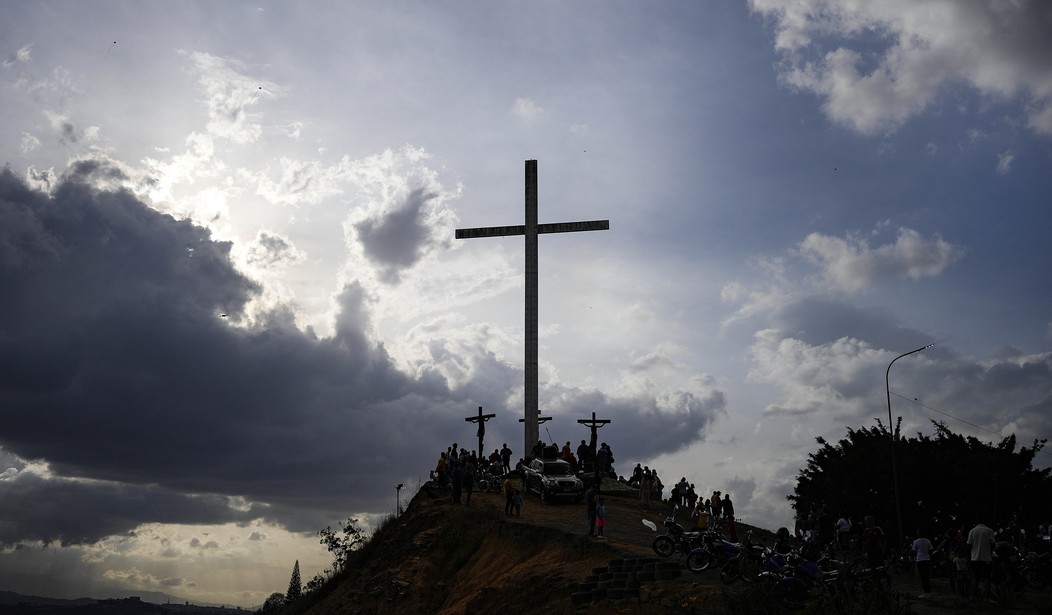“My God, my God, why hast thou forsaken me?” This cry of anguish is one of the traditional seven last words from the Cross. From the 22nd Psalm, Israel expresses its anguish and despair that God has abandoned the people He has chosen. Is it not echoed today in our society of despair in which one of the leading causes of death in young people is suicide? Where depression is rampant, and too many young couples find no compelling reason to bring children into a world in what they see in its ecological and cultural death throes?
Pope Benedict XVI wrote, “If Kant and Hegel had been right, the progress of the Enlightenment should have made man ever freer, more reasonable, and more upright. Instead, the demons we have so eagerly declared dead rise up ever more powerfully from the depths of man and teach him to feel a profound anxiety at his own power and powerlessness: his power to destroy, his powerlessness to find himself and master his own inhumanity.”
Echoing the words from Job, today’s culture asks, “Where is the God who could create such a world?” Challenged by his friends, Job could find no pat answer. Suffering can only be experienced and endured with God. What can a culture in the grip of contemporary despair learn from Christ as he hung on the cross?
The first thing to note is the cry from the cross and in the Psalm is not addressed to some meaningless void. By crying out to the Father, Jesus transforms despair into a prayer. It is a prayer to someone. It affirms that God is near to us in our suffering. But how can God and the evil of suffering both exist?
“Remarkably enough, the claim that there can no longer be any God, the claim, that is, that God has completely disappeared, is the urgent conclusion drawn by onlookers at the terror, the people who view the horrors from the cushioned armchair of their own prosperity and attempt to pay their own tribute to it and ward it off from themselves by saying, “If such things can happen, there is no God!” said Benedict XVI.
Those who lament tragedy from the distance of a media report are more likely to be rich in indifference to God. The people who actually experience the terrors of war, the concentration camp, and the prospect of their own illness and death are often the most fervent in their prayers. They are the ones who’s prayers rise to heaven with the most trust in God’s mercy.
A philosopher friend, an atheist at the time, experienced this. He was drowning off Jones Beach, New York. As he went down for what he thought was the last time, he started to pray. Ever the philosopher, he rebuked himself. If you don’t believe in God, why are you praying? It doesn’t make any sense. But he kept on praying. When he came to, he was on the beach, alive. Whoever had saved him disappeared into the crowd. He never found that person, but he did find his faith.
As another former atheist philosopher put it, “Trying to find God without praying is like trying to study the stars without using a telescope.”
Each of us has our Good Fridays when suffering goes from the theoretical to the practical. When we join the forsaken, the poor, the downtrodden, and all those who are no longer onlookers at the cross but participants. A life of prayer and charity to others prepares us for these moments. On Good Friday we see Christ showing the way we are to follow.
The last line of Psalm 22, rather than being one of despair, points us to Easter Sunday. “I, too, shall live on in his presence, and beget children to serve him; these to a later age shall speak of the Lord’s name; these to a race that must yet be born shall tell the story of his faithfulness, Hear what the Lord did.”










Join the conversation as a VIP Member